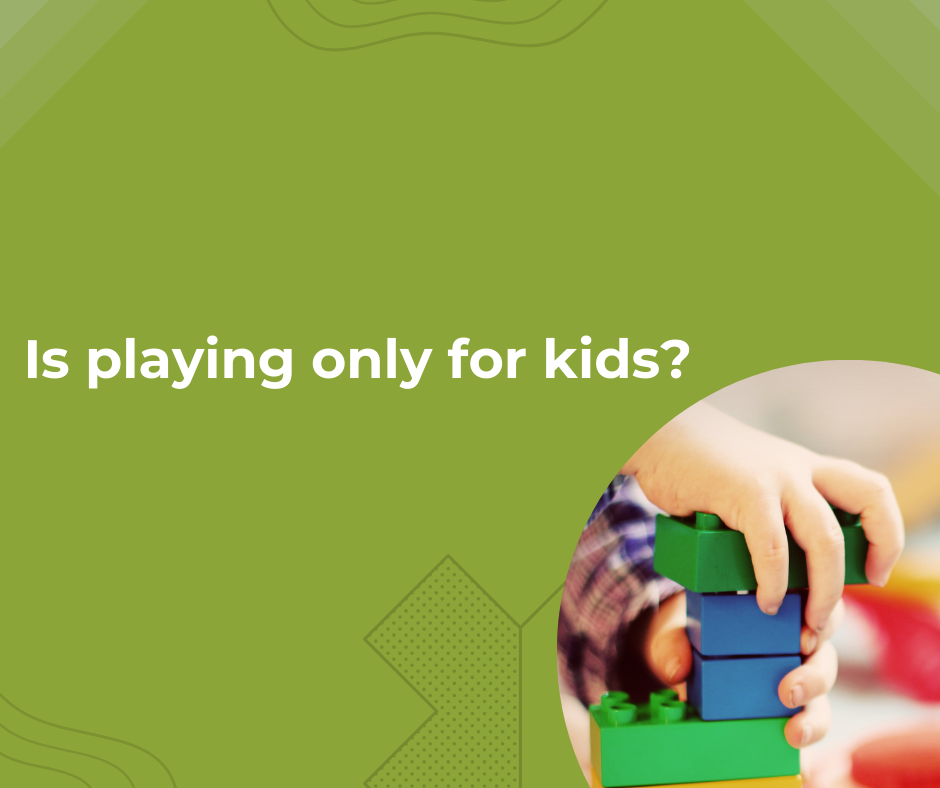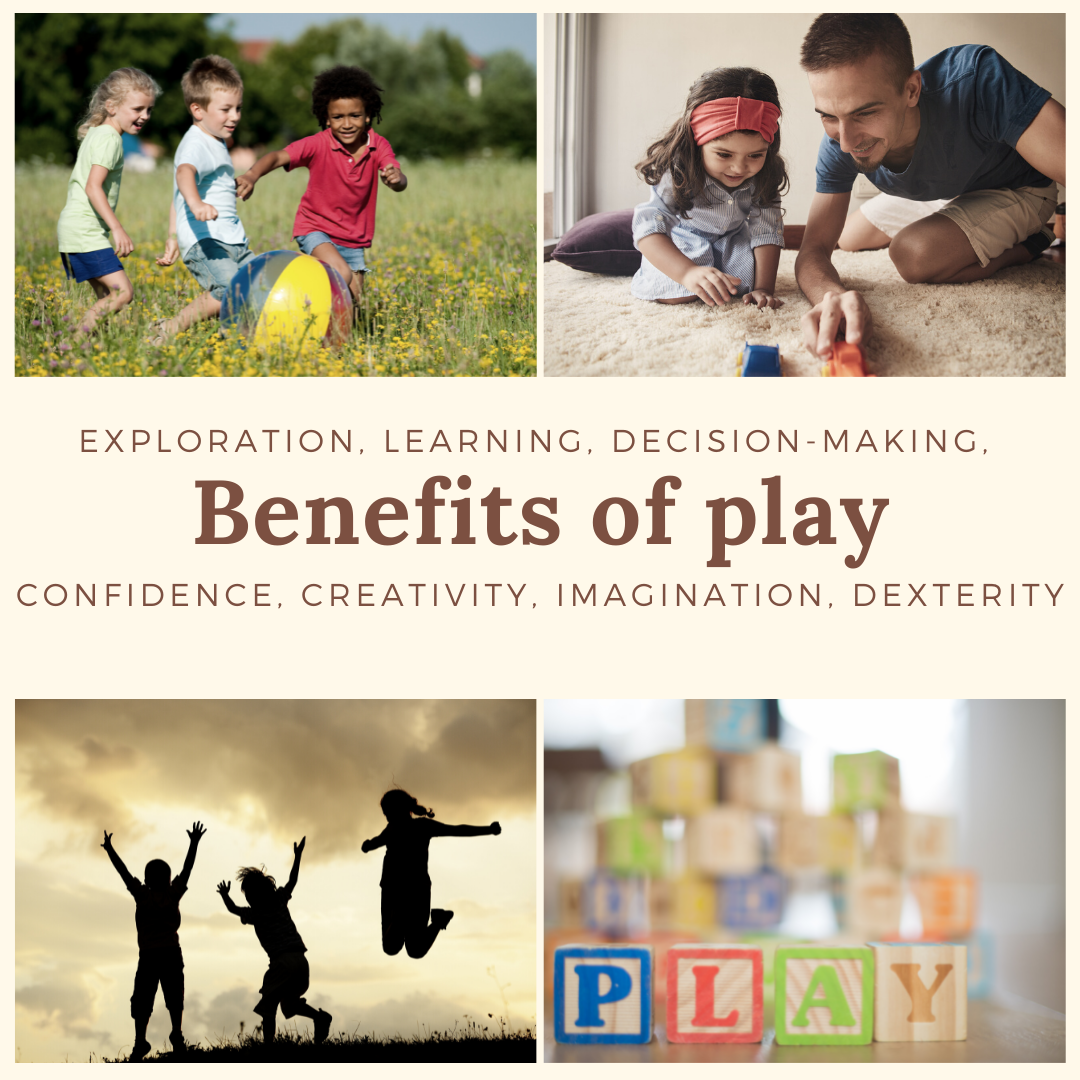Is Playing Only for Kids?

When we talk about play, we usually associate it with children. Thanks to the accumulated body of research (1), now we know that play:
- allows children to use their creativity;
- helps them develop their imagination and dexterity;
- fosters physical, cognitive, and emotional strength;
- helps them create and explore the world around them;
- leads to enhanced confidence;
- helps children develop new competencies such as working in groups, negotiating, resolving conflicts, and decision-making.

But, what about adults? The thing is that, somewhere between childhood and adulthood, we stop playing. And this article explains why we shouldn't.
According to the authors, play helps:
Relieve stress. Play is fun and can trigger the release of endorphins, the body’s natural feel-good chemicals. Endorphins promote an overall sense of well-being and can even temporarily relieve pain.
Improve brain function. Playing chess, completing puzzles, or pursuing other fun activities that challenge the brain can help prevent memory problems and improve brain function. The social interaction of playing with family and friends can also help ward off stress and depression.
Stimulate the mind and boost creativity. Young children often learn best when they are playing—a principle that applies to adults, as well. You’ll learn a new task better when it’s fun and you’re in a relaxed and playful mood. Play can also stimulate your imagination, helping you adapt and solve problems.
Improve relationships and your connection to others. Sharing laughter and fun can foster empathy, compassion, trust, and intimacy with others. Play doesn’t have to include a specific activity; it can also be a state of mind. Developing a playful nature can help you loosen up in stressful situations, break the ice with strangers, make new friends, and form new business relationships.
Keep you feeling young and energetic. In the words of George Bernard Shaw, “We don’t stop playing because we grow old; we grow old because we stop playing.” Play can boost your energy and vitality and even improve your resistance to disease, helping you function at your best.
Besides these benefits, play has something to do with the happiness of grown-ups.
Now, guess which activity makes people the happiest, according to the Princeton Affect and Time Study (PATS)? (2)
No, it’s not parties, listening to music or reading books which were listed among the 44 most frequent activities presented in the survey. It is playing with children. Almost 4,000 people (3,982 to be exact) ranked the activities as follows (here I list only five):
- Playing with children
- Listening to music
- Hunting, fishing, boating, hiking
- Attending sporting events
- Parties or receptions
Similarly to this research on happiness, Dr Brown (3), the founder of the National Institute for Play, believes that “remembering what play is all about and making it part of our everyday lives are probably the most important factors in being a fulfilled human being.” And no, you don't have to play all the time to feel fulfilled. It is just a little true play from time to time that can spread through our lives and make us more productive in everything we do. For others, play offers even more than just happiness. Resnick (4), an expert in educational technologies, is convinced that ‘kindergarten-style learning is exactly what’s needed to help people of all ages develop the creative capacities needed to thrive in today’s rapidly changing society.’ Some experts at MIT have also recognised the importance of play, and now there is a Lifelong Kindergarten group that aims at engaging people in creative learning experiences.
So, stop reading and play :)
And for more interesting facts and funny stories about play, make sure you get your copy of my book Parenting: Easier Said Than Done?
(1) Ginsburg, K. (2007). The importance of play in promoting healthy child development and maintaining strong parent-child bonds. Pediatrics, 119;182
(2) Krueger, A. (2007). Are we having more fun yet? Categorizing and evaluating changes in time allocation. Brookings Papers on Economic Activity, 2, 193–215.
(3) Brown, S. (2009). Play: how it shapes the brain, opens the imagination, and invigorates the soul. New York: Penguin Group.
(4) Resnick, M. (2017). Lifelong kindergarten: Cultivating creativity through projects, passion, peers, and play . MIT Press